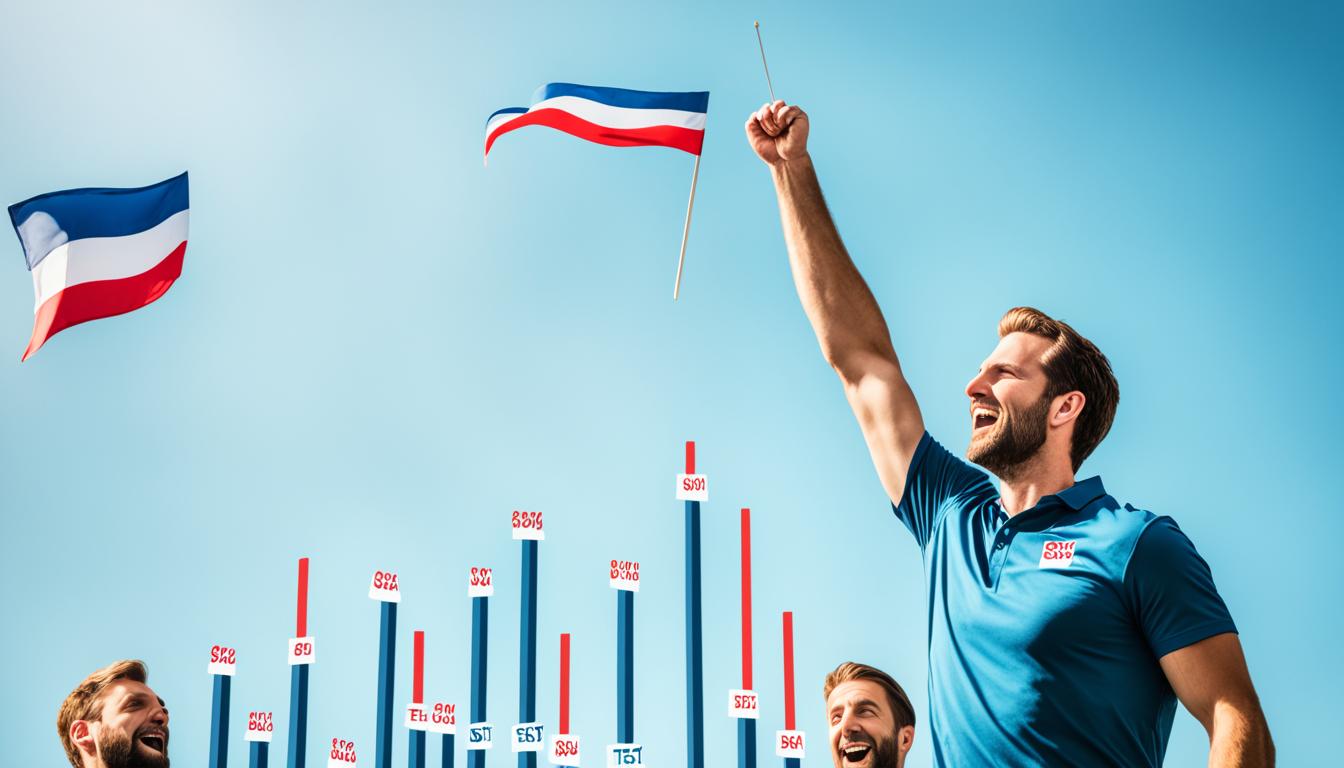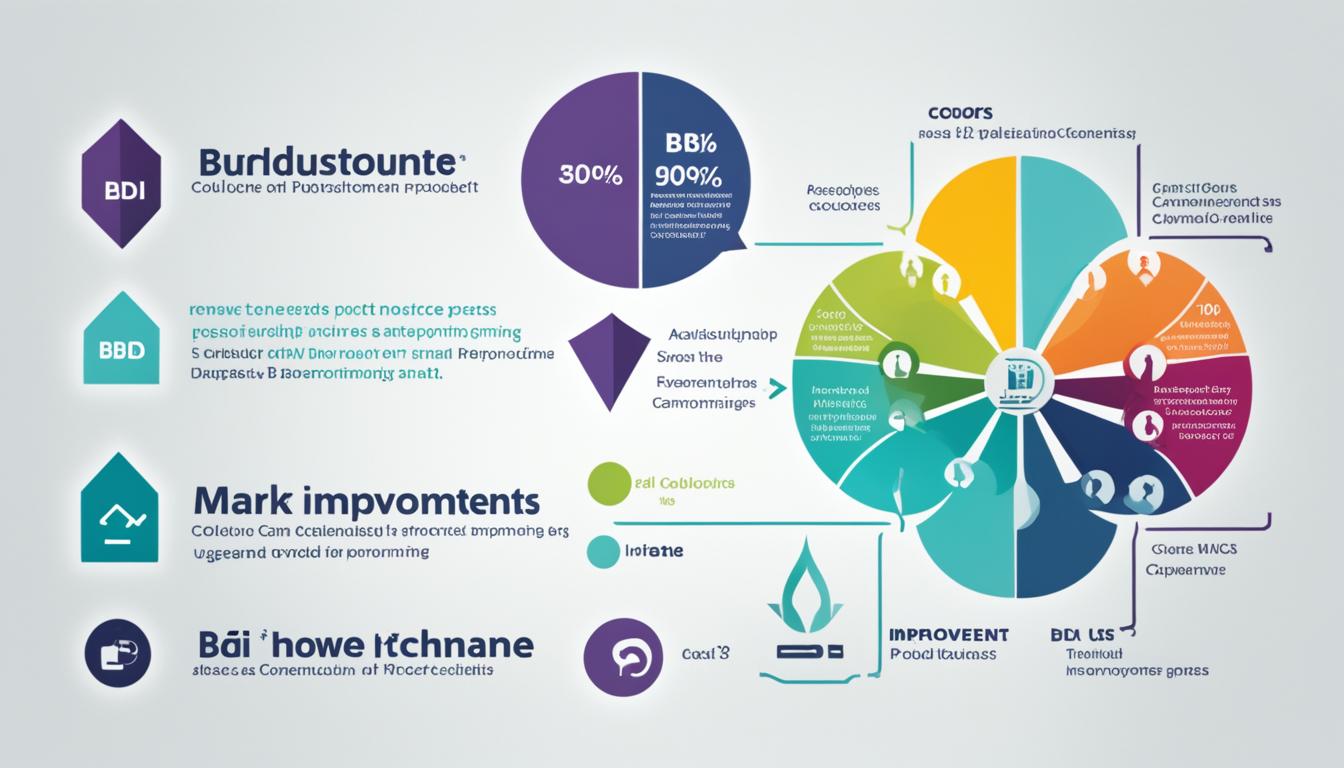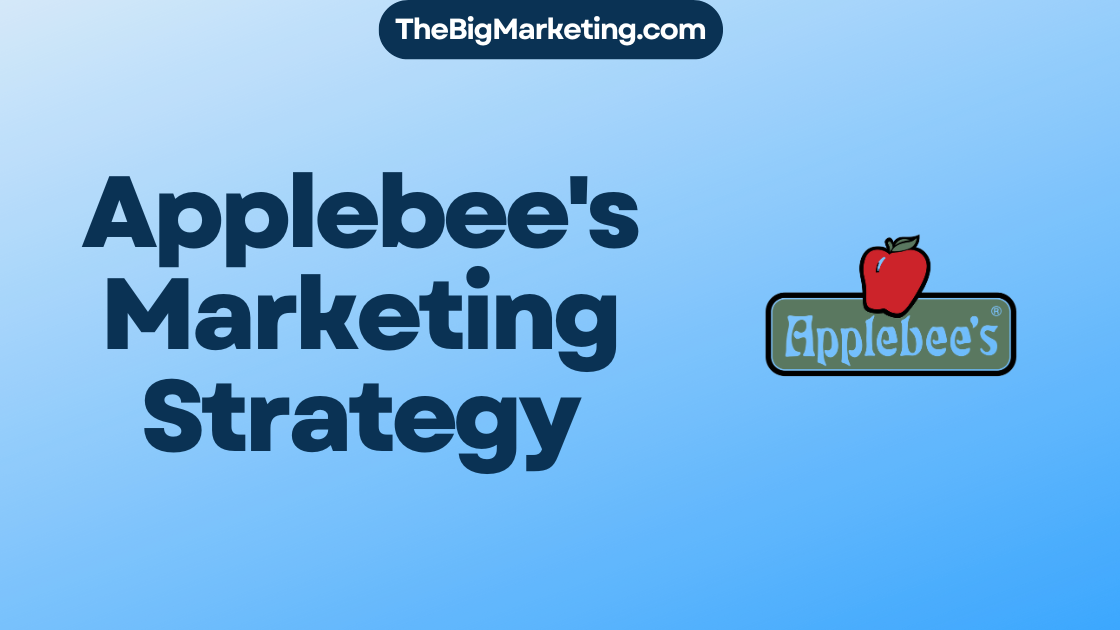Airbnb, the leading platform for vacation rentals, has revolutionized the way people find and book accommodations around the world. As the vacation rental market continues to grow, Airbnb’s marketing strategy remains at the forefront, enabling property owners to effectively promote their rentals and attract a wide range of guests.
In this case study, we will delve into Airbnb’s marketing strategy for 2024 and explore the initiatives they have undertaken to ensure the success of vacation rental marketing and rental property promotion.
Key Takeaways:
- Airbnb’s marketing strategy is crucial in driving the success of vacation rental marketing and rental property promotion.
- The platform’s focus on innovative digital marketing efforts has helped it become a global marketplace with millions of active listings.
- Airbnb’s target audience consists of individuals aged 25-34 who value authentic travel experiences and affordability.
- The company prioritizes search engine optimization (SEO) to attract organic traffic and leverages social media marketing to engage its audience.
- Airbnb engages in experiential marketing through brand collaborations to create unique and memorable experiences.
About Airbnb
Airbnb, one of the pioneers in the vacation rentals industry, was founded in 2008 by Brian Chesky, Joe Gebbia, and Nathan Blecharczyk. What began as an innovative idea to rent out air mattresses in their San Francisco apartment has now become a global phenomenon in the short-term rentals market. Today, Airbnb offers a diverse range of accommodations, from cozy guest rooms and entire homes to unique experiences in unconventional spaces.
One of Airbnb’s recent initiatives includes partnering with the Ministry of Tourism in India to promote tourism in the country. As part of this collaboration, Airbnb has launched the Airbnb Superhost Academy, a program that empowers hosts with the skills and knowledge to provide exceptional hospitality experiences to guests.
Buyer Persona of Airbnb
Airbnb’s success can be attributed to its ability to connect with its target audience effectively. Understanding the buyer persona of Airbnb is crucial for tailoring marketing strategies and offerings that resonate with their target audience’s preferences and needs.
Airbnb Buyer Persona
The Airbnb buyer persona consists of individuals aged 25-34 who are seeking authentic travel experiences. These travelers are explorers at heart, eager to embrace different cultures and traditions. They value affordability, safety, and ease of booking when planning their trips. Airbnb’s target audience appreciates the opportunity to stay in unique accommodations and the chance to connect with locals as a way to enhance their travel experiences.
Traveler Preferences
When it comes to traveler preferences, Airbnb’s target audience prioritizes three key factors:
- Affordability: Many individuals in this demographic are budget-conscious and seek affordable travel options. They appreciate the cost-effectiveness of Airbnb rentals compared to traditional hotels or resorts.
- Safety: Safety is a top concern for Airbnb’s target audience. They appreciate the security measures and safeguards implemented by Airbnb to provide a secure and trusted platform for booking accommodations.
- Ease of Booking: Convenience is paramount for the target audience. They value the seamless and user-friendly booking process offered by Airbnb, allowing them to quickly find and secure accommodations for their travel plans.
Social Media Presence
Airbnb’s target audience is highly active on social media platforms like Instagram and Facebook. They are dedicated to curating their travel experiences and seek inspiration from other travelers. Airbnb leverages social media and user-generated content to showcase unique accommodations and travel experiences, connecting with their target audience’s desire for travel inspiration.
| Target Audience Characteristics | Preferences |
|---|---|
| Age | 25-34 |
| Interests | Authentic travel experiences, exploring different cultures, meeting new people |
| Key Factors |
|
| Social Media Platforms | Instagram, Facebook |
Search Engine Optimization
As part of its digital marketing strategy, Airbnb has implemented a comprehensive SEO strategy to increase its online visibility and drive organic traffic to its website. With a focus on Airbnb SEO strategy, the company has managed to rank for over 500,000 keywords in India alone, demonstrating the effectiveness of their approach.
A key element of Airbnb’s SEO strategy is the emphasis on building high-quality backlinks from reputable domains. By partnering with authoritative websites and acquiring valuable backlinks, Airbnb boosts its domain authority, improving its chances of ranking higher in search engine results.
These strategic backlinks not only drive referral traffic but also enhance organic visibility, enabling Airbnb to attract a wider audience interested in vacation rentals and short-term stays. Through its link-building efforts, Airbnb taps into the authority and credibility of well-established websites, multiplying its chances of appearing in relevant search queries.
By combining a strong backlink profile with compelling and optimized content, Airbnb maximizes its chances of appearing in organic search results. This drives an influx of organic traffic to their website, resulting in increased bookings and revenue.
In addition to building backlinks, Airbnb also focuses on optimizing its website structure, meta tags, and content to align with search engine best practices. By optimizing keywords, metadata, and internal linking strategies, Airbnb ensures its pages are easily discoverable and relevant to user search queries.
Overall, Airbnb’s commitment to SEO has proven successful, helping the company dominate search engine rankings in the vacation rental industry. Through a combination of backlinks, optimized content, and excellent user experience, Airbnb continues to attract a steady stream of organic traffic, fueling its growth and success.
Social Media Marketing
Airbnb has recognized the immense potential of social media marketing in reaching and engaging their target audience. They have established a strong presence on popular social media platforms like Instagram, Facebook, and Twitter, utilizing these channels to connect with their users and showcase their unique travel experiences.
One of the key strategies Airbnb employs is leveraging user-generated content to create visually appealing narratives that go beyond traditional accommodation marketing. By encouraging their users to share their travel experiences on social media using designated hashtags, Airbnb is able to curate a vast collection of authentic content that acts as a powerful tool for storytelling and inspiration.
Instagram: A Visual Showcase of Experiences
On Instagram, Airbnb takes advantage of the platform’s highly visual nature to showcase stunning photographs of their accommodations and destinations. They feature a diverse range of locations, from cozy cabins nestled in the mountains to luxurious beachfront villas, each highlighting the unique offerings of their hosts.
Airbnb also collaborates with influencers and photographers to further amplify their brand presence on Instagram. By partnering with individuals who have a large following and a passion for travel, Airbnb is able to tap into a wider audience and inspire them to explore new destinations through their platform.
Additionally, Airbnb encourages its users to share their own experiences on Instagram by reposting their content and giving them credit. This user-generated content not only acts as valuable social proof but also helps foster a sense of community among Airbnb users.
Facebook and Twitter: Engaging with the Community
On Facebook and Twitter, Airbnb focuses on engaging with their community through informative and interactive posts. They share travel tips, destination guides, and promote their unique experiences, encouraging users to comment and share their thoughts.
Through these social media channels, Airbnb also highlights positive customer testimonials, showcasing how their platform has enabled memorable and authentic experiences for travelers from around the world. This user-generated content serves as valuable social proof and helps build trust among potential customers.
Overall, Airbnb’s social media marketing strategy revolves around storytelling, inspiration, and the power of user-generated content. By creating visually appealing narratives and leveraging their community’s experiences, they foster engagement, attract new users, and solidify their brand’s position as a leading platform for unique and authentic travel experiences.
Experiential Marketing X Brand Collaboration
Airbnb embraces the power of experiential marketing by forging strategic partnerships with iconic brands, resulting in unforgettable and one-of-a-kind experiences for its guests. Through these collaborations, Airbnb has successfully intertwined brand storytelling with extraordinary travel adventures, captivating the imagination of its users and leaving an indelible impression.
One notable example of Airbnb’s experiential marketing prowess is the opportunity for guests to stay in iconic locations such as Barbie’s Malibu Dream House or Monica’s apartment from the beloved TV show “Friends.” These unique collaborations not only offer fans an opportunity to immerse themselves in the world of their favorite characters but also enable Airbnb to leverage the cultural significance and influence of these brands to attract and engage new audiences.
By partnering with influential brands, Airbnb taps into the power of influencer marketing, allowing them to reach a broader audience and create a buzz around each collaboration. The immersive experiences provided through these partnerships generate user-generated content and social media engagement, effectively building brand awareness and amplifying Airbnb’s presence.
Through its experiential marketing and brand collaborations, Airbnb continues to redefine the travel experience, transforming ordinary stays into extraordinary adventures.
Check out the table below for a snapshot of some notable Airbnb brand partnerships:
| Brand | Collaboration |
|---|---|
| Barbie | Stay in Barbie’s Malibu Dream House |
| “Friends” | Stay in Monica’s apartment |
| LEGO | Stay in a LEGO-inspired house |
| Mercedes-Benz | Ride in a luxurious Mercedes-Benz |
These partnerships not only elevate the travel experience but also demonstrate the power of collaboration between brands to create unique and unforgettable memories for Airbnb guests.
Content Marketing Strategy
Airbnb’s success can be attributed, in part, to its effective content marketing strategy. By leveraging the power of storytelling and authentic experiences, Airbnb has captivated its audience and established itself as a leading platform for unique travel experiences.
One of the key elements of Airbnb’s content marketing strategy is the use of blogs and video content to share authentic stories and experiences of their customers. Through these channels, Airbnb showcases the diverse range of accommodations available on the platform, immersing potential guests in the experience and creating a sense of connection.
By highlighting the unique offerings of their hosts, Airbnb not only attracts and engages their target audience but also builds trust. When travelers see real people sharing their homes and stories, they are more likely to feel confident in their booking decision and have a sense of belonging even before they arrive at their destination.
With a focus on storytelling, Airbnb’s content marketing strategy goes beyond traditional accommodation marketing. They tap into the emotions and aspirations of their audience, inspiring them to explore new places, meet new people, and create memorable experiences.
Storytelling plays a crucial role in creating an emotional bond between the brand and its audience. People crave experiences that are real, personal, and authentic – and that is precisely what Airbnb delivers through its content marketing efforts.
A prime example of Airbnb’s successful content marketing is their “Experiences” section, where guests can book activities that provide authentic and unique opportunities to explore a destination. By curating these experiences and sharing them through captivating content, Airbnb builds excitement and anticipation, enticing travelers to embark on their next adventure.
Airbnb’s content marketing strategy has proven to be a powerful tool in attracting and retaining customers. By telling stories and promoting authentic experiences, they have created a community of passionate travelers who trust the platform and keep coming back for more.
Traditional Promotion Strategy
Airbnb employs a comprehensive promotion strategy that combines both online and offline channels to reach a wider audience. While digital marketing plays a crucial role in their overall strategy, they also recognize the value of local marketing and word-of-mouth promotion to create a social media buzz. Unlike global brands, Airbnb focuses on targeted local marketing strategies to connect with their customers more effectively.
Targeting Local Customers
One key aspect of Airbnb’s promotion strategy is targeting local customers. They understand the importance of catering to the specific needs and preferences of each region. To achieve this, Airbnb provides city guides and curates unique experiences that are tailored to the local culture and attractions. By showcasing these local experiences on their website, Airbnb engages with potential customers who are looking for authentic travel experiences in their own cities or regions.
Social Media Buzz and Word-of-Mouth Marketing
Airbnb recognizes the power of social media as a marketing tool and actively creates buzz through their social media accounts. By sharing visually appealing content, engaging stories, and positive customer testimonials, Airbnb generates excitement and curiosity among their target audience. They leverage platforms like Instagram, Facebook, and Twitter to connect with their customers on a personal level and encourage them to share their experiences with the wider community. This generates valuable word-of-mouth marketing, amplifying the reach and impact of Airbnb’s brand messaging.
Offline Marketing Initiatives
In addition to their digital efforts, Airbnb also embraces offline marketing initiatives to enhance their brand presence and engage with customers in the physical world. They organize events, sponsor local community programs, and collaborate with local businesses to create memorable experiences for their customers. These offline activities help Airbnb establish a strong connection with the local community and build trust among their target audience.
Local Marketing Strategies
Unlike global brands, Airbnb understands that successful marketing requires a deep understanding of the local culture, customs, and preferences. They tailor their marketing campaigns and messaging to resonate with the local audience, ensuring relevance and effectiveness. This localized approach helps Airbnb build stronger relationships with their customers and establish a prominent foothold in each market they operate in.
| Promotion Strategy | Description |
|---|---|
| Targeted Local Marketing | City guides and curated local experiences |
| Social Media Buzz | Engaging content, positive customer testimonials on platforms like Instagram, Facebook, and Twitter |
| Word-of-Mouth Marketing | Encouraging customers to share their experiences and recommend Airbnb to others |
| Offline Marketing Initiatives | Events, community programs, collaborations with local businesses |
| Localized Approach | Tailoring marketing campaigns to resonate with the local culture and preferences |
Marketing and Advertising Campaign Examples
Airbnb has implemented numerous successful advertising campaigns to promote its brand and unique offerings. Each campaign has showcased different aspects of the Airbnb experience, targeting specific segments of their audience. Let’s take a closer look at some notable examples:
Superhost Campaign
The “Superhost” campaign is a testament to the exceptional hosts within the Airbnb community. Through this advertising campaign, Airbnb highlights the remarkable stories and experiences of their top hosts. By showcasing the dedication and hospitality of these Superhosts, Airbnb aims to inspire and reassure travelers that they will have an extraordinary stay.
Rooms Campaign
The “Rooms” campaign by Airbnb focuses on promoting their new category that allows guests to book private bedrooms. With this campaign, Airbnb wants to emphasize the variety of accommodation options available to travelers, ensuring that everyone can find the perfect room to suit their needs and preferences. This campaign encourages potential guests to explore the diverse offerings and embrace the comfort of staying in private bedrooms.
Apart from the “Superhost” and “Rooms” campaigns, Airbnb has also launched other successful advertising initiatives:
- The “Pride” campaign, which celebrates inclusivity and diversity within the Airbnb community, particularly during Pride Month. This campaign aims to create a welcoming environment for LGBTQ+ travelers.
- The “Made Possible by Hosts” campaign, which acknowledges and appreciates the contribution of Airbnb hosts to the overall guest experience. Through this campaign, Airbnb highlights how hosts play a pivotal role in creating memorable stays for their guests.
These advertising campaigns not only promote Airbnb as a brand but also align with their mission of providing unique and unforgettable travel experiences. Each campaign tells a compelling story, capturing the essence of the Airbnb community and inspiring travelers to choose Airbnb for their next adventure.
Business Model and Revenue Strategy
Airbnb operates on an aggregator-based business model, connecting property owners and travelers. This innovative approach allows property owners to list their spaces and allows travelers to book accommodations directly from the owners. By acting as an intermediary, Airbnb has created a platform that benefits both parties.
One of Airbnb’s primary revenue sources is through commissions earned from property owners. When a booking is made through the platform, Airbnb charges a commission fee to the property owner. This fee is based on a percentage of the total booking value, ensuring that Airbnb earns revenue for every successful transaction. This commission-based model has proven to be highly profitable for Airbnb, as the platform continues to grow and attract more property owners.
In addition to commissions, Airbnb also charges service fees to travelers for each confirmed booking. These fees are separate from the rental cost and cover the operational expenses incurred by Airbnb in providing its services. The service fees contribute to Airbnb’s overall revenue stream and enable the platform to maintain and improve its services for both property owners and travelers.
Aside from the commission fees and service fees, Airbnb has diversified its revenue sources through additional offerings. For example, Airbnb publishes a magazine called Airbnbmag, which is available both in print and digitally. The magazine features travel stories, destination guides, and tips for Airbnb hosts and guests. By monetizing their content through advertising and subscriptions, Airbnb generates additional revenue.
Another revenue source for Airbnb is its business travel services. Recognizing the growing trend of business travelers using Airbnb for accommodations, the company introduced features specifically tailored to this market segment. By partnering with corporate travel management companies and providing services such as expense tracking and enhanced booking options, Airbnb has tapped into a lucrative market and expanded its revenue streams.
Airbnb Revenue Sources
| Revenue Source | Description |
|---|---|
| Commissions from Property Owners | Airbnb earns a commission fee from property owners for each successful booking made through the platform. |
| Service Fees from Travelers | Travelers are charged service fees for every confirmed booking. These fees contribute to Airbnb’s revenue and cover operational expenses. |
| Airbnbmag | The publication of a magazine allows Airbnb to generate revenue through advertising and subscriptions. |
| Business Travel Services | By catering to the needs of business travelers and partnering with corporate travel management companies, Airbnb has created an additional revenue stream. |
Conclusion
Airbnb’s marketing success can be attributed to its comprehensive and strategic growth strategies. Through a combination of digital marketing techniques and traditional promotion, Airbnb has successfully built a strong brand presence and attracted a loyal customer base. By leveraging SEO, social media marketing, content marketing, and innovative campaigns, they have been able to create a compelling case study in the realm of online vacation rental marketing.
Their focus on SEO optimization has resulted in increased organic traffic and higher search engine rankings. Additionally, Airbnb’s social media marketing efforts, particularly on platforms such as Instagram, have allowed them to showcase unique travel experiences and engage their target audience through visually appealing user-generated content.
Furthermore, Airbnb’s strong emphasis on content marketing has helped them connect with their audience on a deeper level by sharing authentic stories and experiences. By highlighting the unique offerings of their hosts, they have successfully positioned themselves as more than just a booking platform and as a provider of unforgettable and authentic travel experiences.
In conclusion, Airbnb’s marketing strategy serves as a prime example of a successful digital marketing case study. Through their growth strategies and innovative campaigns, they have achieved remarkable success and cemented their position as a leader in the vacation rental industry.







